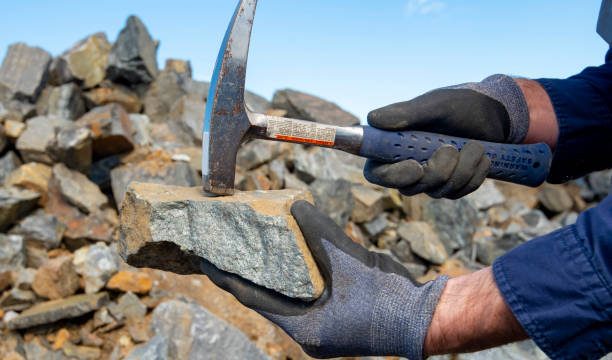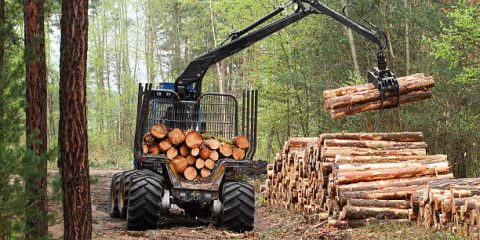
Geology is the scientific study of the Earth—its materials, structures, processes, and history. It plays a vital role in understanding natural resources, environmental changes, natural disasters, and the evolution of our planet. Whether you’re a student pursuing a degree in Earth sciences or a researcher exploring new frontiers, identifying relevant and impactful research topics related to geology is the first step toward contributing to this fascinating field.
Importance of Geology Research
Research in geology helps us understand how the Earth functions and how human activities influence it. It allows scientists to predict geological hazards like earthquakes, volcanic eruptions, and landslides while also guiding exploration for minerals, fossil fuels, and groundwater.
Moreover, geology research plays an essential role in:
- Sustainable management of natural resources
- Understanding climate change and past environmental conditions
- Developing eco-friendly mining and energy extraction techniques
- Designing infrastructure resilient to geological hazards
Thus, geology research contributes directly to global sustainability, disaster mitigation, and economic development
Classification of Geology Research Topics
To make your research process easier, below are classified and detailed research topics related to geology, covering various subfields such as environmental, structural, petroleum, and engineering geology.
1. Environmental and Engineering Geology Research Topics
Environmental and engineering geology focus on the interaction between human activities and Earth’s processes. These topics explore soil stability, waste management, and the environmental impacts of construction and mining.
- Assessment of soil stability for urban construction projects
- Geological factors influencing groundwater contamination
- The role of geology in sustainable urban development
- Impact of mining activities on local ecosystems
- Geotechnical evaluation of landslide-prone regions
- Role of rock mechanics in tunneling and dam construction
- Environmental effects of quarrying and open-pit mining
- Application of remote sensing in environmental geology
- Use of geophysical methods for subsurface contamination detection
- Geotechnical hazard mapping for infrastructure development
2. Mineralogy and Petrology Research Topics
Mineralogy and petrology study the formation, composition, and classification of minerals and rocks. They are crucial for understanding the Earth’s crust and identifying valuable mineral deposits.
- Petrographic analysis of igneous rock formations
- Comparative study of sedimentary and metamorphic rocks
- Formation processes of hydrothermal mineral deposits
- The role of geochemical analysis in mineral exploration
- Characterization of rare earth elements in igneous complexes
- Evolution of magmatic processes in volcanic regions
- Optical properties of minerals and their geological significance
- Relationship between mineral composition and rock weathering
- Study of mineralogical changes due to metamorphism
- Exploration of gemstone deposits in specific geological terrains
3. Structural Geology and Tectonics Research Topics
Structural geology focuses on the deformation of Earth’s crust and tectonic forces that shape mountains, valleys, and faults.
- Analysis of fault structures and their impact on seismic activity
- Tectonic evolution of continental rift zones
- Relationship between plate tectonics and mountain building
- Study of stress and strain patterns in folded rock layers
- Mapping structural discontinuities in metamorphic terrains
- Structural analysis of fault zones using GIS techniques
- Role of tectonic uplift in landscape evolution
- Crustal deformation studies using remote sensing data
- Kinematic analysis of shear zones in metamorphic belts
- Plate boundary interactions and earthquake risk assessment
4. Sedimentology and Stratigraphy Research Topics
Sedimentology deals with sediment transport and deposition, while stratigraphy focuses on the layering of rock formations.
- Sedimentary processes in riverine and deltaic environments
- Stratigraphic correlation of oil-bearing sedimentary basins
- Paleoenvironmental reconstruction using sedimentary records
- Grain size distribution and its depositional significance
- Study of carbonate sedimentation in marine environments
- Analysis of clastic sedimentary rocks in coastal plains
- Sequence stratigraphy of Cretaceous formations
- Role of sedimentary structures in interpreting past environments
- Facies analysis in sedimentary basins
- Stratigraphic techniques for basin analysis and oil exploration
5. Geophysics and Seismology Research Topics
Geophysics applies physical principles to study the Earth’s internal structure, while seismology focuses on earthquakes and seismic waves.
- Earthquake hazard assessment using seismic data
- Application of geophysical methods in mineral exploration
- Subsurface imaging using gravity and magnetic surveys
- Seismic tomography for crustal structure mapping
- Detection of underground water using resistivity methods
- Modeling ground motion for earthquake prediction
- Geophysical monitoring of volcanic activity
- Assessment of seismic risk in urban areas
- Use of microseismic techniques in oil and gas exploration
- Integration of remote sensing and geophysical data for structural analysis
6. Paleontology and Historical Geology Research Topics
Paleontology explores fossils to understand ancient life forms and environments, while historical geology studies Earth’s history through rock records.

- Fossil evidence for evolutionary transitions in vertebrates
- Paleoecological reconstruction of prehistoric environments
- Study of microfossils for petroleum exploration
- Evolution of coral reefs through geological time
- Stratigraphic significance of fossil assemblages
- Radiometric dating and the geological time scale
- Mass extinction events and their geological evidence
- Paleoenvironmental interpretation of fossil-bearing strata
- Role of paleontology in understanding climate evolution
- Comparative study of fossil preservation across environments
7. Economic and Petroleum Geology Research Topics
Economic and petroleum geology deal with the exploration and management of natural resources such as oil, gas, and minerals.
- Exploration of hydrocarbon reserves in sedimentary basins
- Geochemical analysis for petroleum prospecting
- Assessment of shale gas potential in unconventional reservoirs
- Relationship between structural traps and hydrocarbon accumulation
- Role of reservoir characterization in petroleum production
- Mineral exploration using geostatistical modeling
- Assessment of gold mineralization using geochemical data
- Exploration of lithium and cobalt deposits for renewable energy
- Impact of deep-sea mining on marine geology
- Future prospects of sustainable mining in resource management
Conclusion
Geology is an ever-evolving discipline that provides essential insights into the Earth’s composition, history, and processes. The above research topics related to geology offer a diverse range of areas for students, academics, and professionals to explore — from environmental sustainability to resource exploration and tectonic studies.
When selecting a topic, consider your personal interest, the availability of research materials, and the relevance of the topic to modern-day geological challenges.
A well-chosen research topic not only deepens your understanding of Earth’s dynamics but also contributes to solving real-world problems like resource depletion, environmental degradation, and natural disasters.
FAQs About Geology Research Topics
1. Why is geology research important?
Geology research helps us understand the Earth’s structure, predict natural hazards, and manage resources sustainably. It is crucial for environmental protection, energy exploration, and infrastructure development.
2. What are the major branches of geology?
The main branches include mineralogy, petrology, structural geology, sedimentology, paleontology, geophysics, environmental geology, and economic geology.
3. Which geology research topics are best for undergraduates?
Undergraduate students can explore topics like soil stability analysis, groundwater contamination, mineral composition studies, or sedimentary basin analysis.
4. How does geology contribute to environmental protection?
Geologists identify areas prone to erosion, landslides, or contamination and propose strategies to mitigate environmental damage.
5. What are the emerging trends in geology research?
Emerging trends include remote sensing applications, climate change reconstruction, deep-sea mineral exploration, and sustainable mining technologies.
ALSO READ: Research Topics Related to Agribusiness









1 thought on “Research Topics Related to Geology”